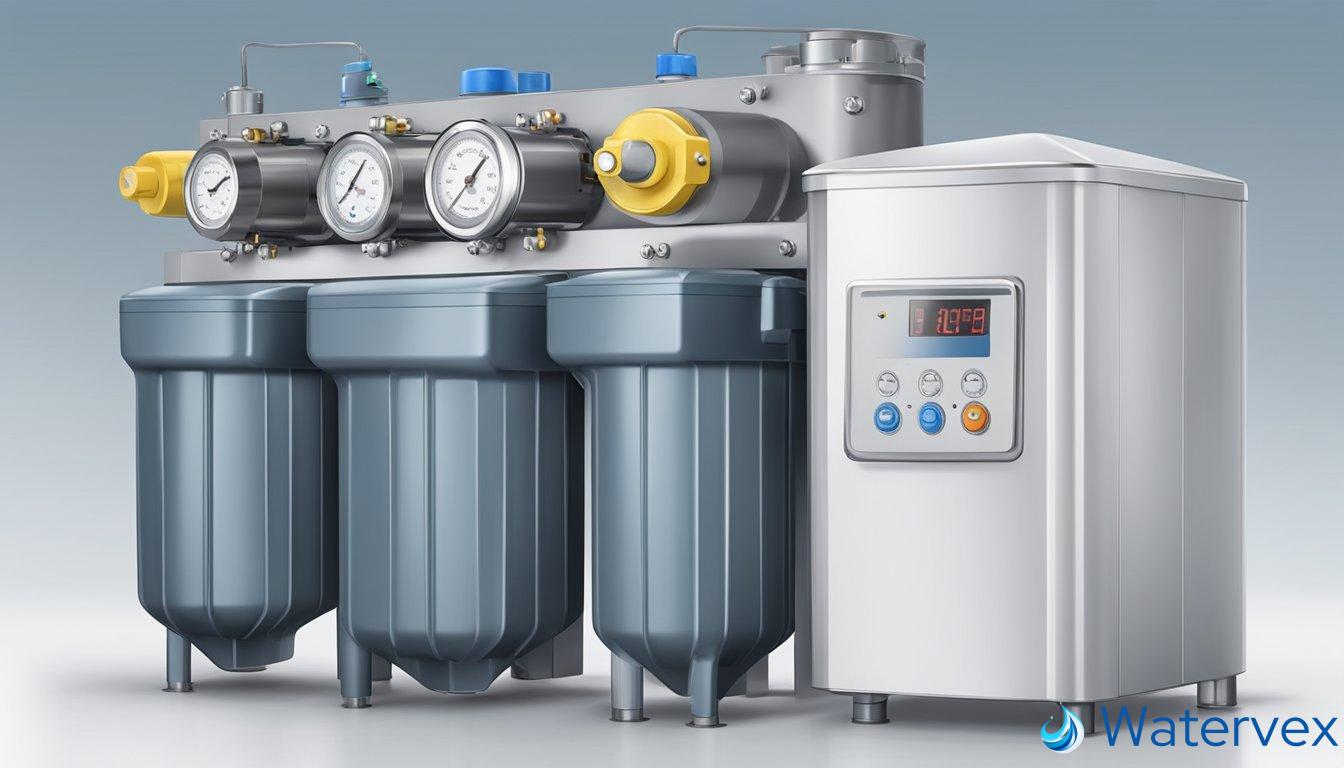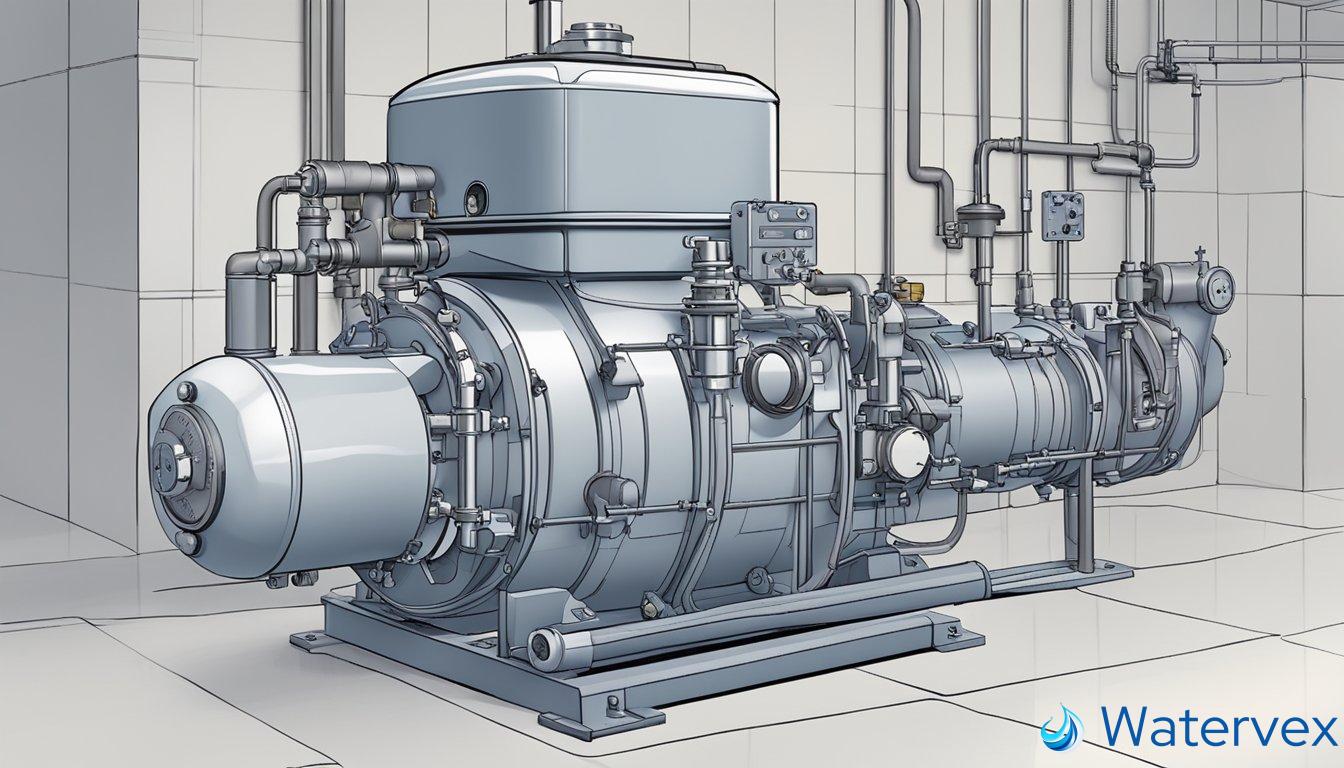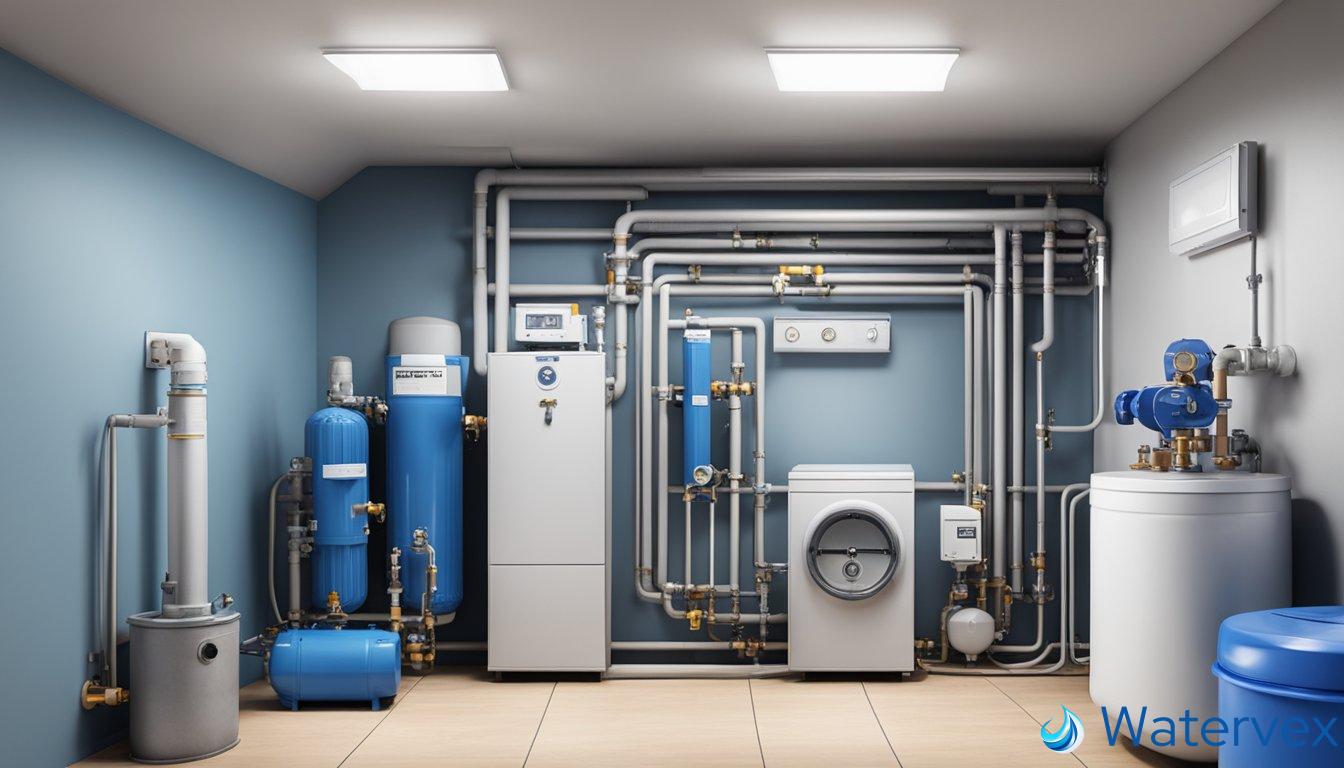If your water softener is causing a racket with its timer motor, you’re not alone. Many homeowners experience noises that stem from their water softening system, and it’s particularly discouraging when you can’t pinpoint the issue. The timer motor in your water softener plays a crucial role in controlling the regeneration cycle, ensuring that your tank consistently delivers softened water. A healthy system should run quietly, so if you’re hearing unusual sounds, it could signal that something’s amiss.

These noises can vary from a soft click to an attention-grabbing buzz and typically occur when the timer motor is engaging or disengaging. While some sounds are normal during regeneration, consistent or loud noises are often an indication of an underlying problem. Issues can range from simple fixes like tightening a loose part to more complex situations like worn-out gears or a problem with the water pressure that affects the motor function. Understanding these sounds and their causes is your first step toward a quieter, more efficient water softener.
Key Takeaways
- Identifying abnormal noises from the timer motor is key to maintaining a functional water softener.
- Regular noise during regeneration is normal; loud, consistent noise may indicate a malfunction.
- Consulting a professional can clarify whether the noise is a sign of a simple fix or a more serious repair need.
Understanding Water Softener Noises
When a water softener starts making unusual sounds, it can be disconcerting. Recognizing these noises and understanding their sources is crucial for maintaining your system.
Common Types of Noises and Their Causes
Grinding and Squeaking: If you hear grinding or squeaking, it typically points to a mechanical issue. Internals, like gears or bearings that have become worn or are lacking lubrication, might be the culprit. These components are part of the motor-driven assembly, which can produce such sounds when they’re not operating smoothly.
Hissing and Trickling: Hissing usually means there’s water flowing through the system, which can occur during normal regeneration. A trickling sound suggests a similar process, possibly a leaky valve allowing water to pass when it shouldn’t.
Clicking: A rhythmic clicking noise often stems from your timer motor, which is integral to the function of your water softener. This sound can be normal, as the timer motor activates gears and switches during cycling. Over time, the motor may produce louder clicking, signaling it might be wearing out or needs attention.
Alarm: Some water softeners are equipped with alarms that sound off to alert you to specific issues, such as low salt levels or system malfunctions. This noise serves as an early warning to prevent larger issues.
Banging: Known as water hammer, banging sounds within your plumbing can occur when the softener valves close too quickly, disrupting water flow and creating shock waves.
How Motor and Regeneration Noises Differ
Timer Motor Noise: The timer motor controls cycles of your water softener, operating valves and regeneration processes. If the noises from the motor are louder than usual or have a new pattern, it could indicate the need for maintenance or replacement.
Regeneration Noise: During regeneration, water passes through the system at high speed, filling tanks and flushing out minerals. Sounds like flowing water or slight hissing during these periods are typical and signal that the system is functioning correctly.
Identifying Issues with Water Softener Timer Motors

When your water softener makes unusual noises, it could be a sign that the timer motor or related components are in need of inspection or repair.
Diagnosing Common Timer Motor Problems
Grinding Noises: If you hear grinding from your water softener, it’s possible that the gears connected to the timer motor are worn out. Each gear interlocks with another, and over time, these can wear down, losing their smooth interaction and resulting in a grinding sound.
Ticking Sounds: A consistent ticking might suggest the timer motor itself is struggling to perform its task. This motor drives a piston back and forth during the regeneration cycle and should run quietly. Mechanical noise may indicate the motor is nearing the end of its life or is obstructed.
Erratic Movement: Should the timer seem erratic or if you notice your system regenerating at odd times, the circuit switch within the motor assembly might be faulty.
Troubleshooting Steps:
- Listen for the type of noise to narrow down the issue.
- Check if there’s a visible obstruction or debris.
- Verify power supply consistency to the timer.
- Observe the timer during a manual regeneration for any irregularities.
Affected Components and Maintenance Tips
Timely Replacement: In case of worn-out gears or a failing motor, prompt replacement can prevent further damage to your system. Routine checks can help catch these issues early on.
Regular Cleaning: To maintain the mechanical parts, regular cleaning is advised to keep debris from interfering with normal operation.
Check Pressure: Incorrect water pressure can strain the motor and its components. Ensure your system operates within the recommended pressure range.
Professional Assessment: When in doubt, it’s best to consult a professional. Specialized knowledge might be necessary to diagnose complex issues involving internal parts like the piston or the timer’s circuit switch.
To keep your water softener in optimal condition, stay attentive to changes in its operations, especially noises, which can be early indicators of the need for maintenance or part replacement. Remember, timely interventions can save you from more extensive repairs down the line.
Solving Water Softener Sounds

If your water softener’s timer motor is causing disruptive noise, addressing this issue swiftly can lead to a serene environment.
Step-by-Step Guide to Quiet Down Your Appliance
Identify the Noise: The first step is to discern whether the sound is part of the water softener regeneration cycle or indicative of a malfunction. Typical regeneration sounds include light clicking or humming.
Inspect and Clean: Sometimes, debris or sediment could lead to noisy valves. Turn off the power and water supply before removing any covers. Inspect for obstructions and clean valves as needed.
Lubricate Moving Parts: Apply a silicone-based lubricant to the moving parts of the timer motor to minimize noise. Do not use oil-based products, which could attract more debris.
Tighten Fittings: Loose fittings can rattle during operation. Secure any loose parts to ensure they are not the source of the noisy water softener.
Adjust Settings: Review the settings on your Culligan water softener or similar models. Improper settings can extend the motor’s run time unnecessarily, contributing to the noise.
When to Seek Professional Service
Persistent Noise: If the noise persists after troubleshooting, the issue may be a worn-out motor or gears. These components may require replacement.
Expert Diagnosis: Certain water softener problems—like a damaged recharge mechanism—can be complex. When in doubt, enlist a professional service to diagnose and fix sophisticated issues.

